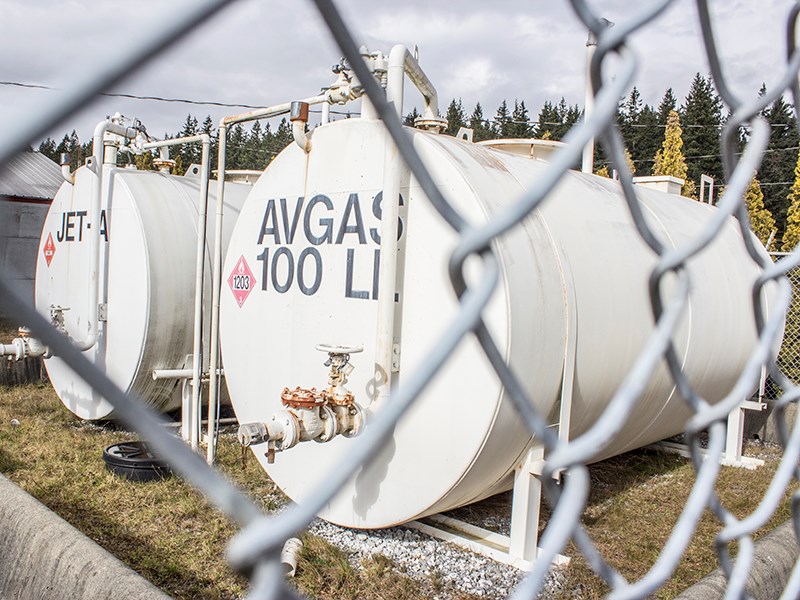A discussion on aviation-fuel sales at Powell River Airport has sent City of Powell River staff back to looking at various options.
City council heard presentations from Cory Carr, who currently owns a fuel-dispensing system at the airport, and Tor Birtig, city director of infrastructure, at its Tuesday, February 16, committee of the whole meeting.
“There are certain things we’ve got to have,” said mayor Dave Formosa. “To have an airport but no fuel [sales] there is ridiculous.”
Carr reported that he took over the fuel-sales business from his father after selling Oceanview Helicopters and kept it running for about two years, providing two common types of fuel, Jet A used for jet-engine-powered aircraft and 100 Low Lead used for smaller, piston-powered aircraft, such as Cessnas.
Carr’s system, installed about 15 years ago, includes two 22,000-litre tanks, tarmac pumps and an electronic-payment kiosk system.
“Really, the big drawback for me was just the amount of time I was putting into something that was basically a break-even type of business, and that became preventative in the long term,” said Carr.
Meanwhile, the city’s director of infrastructure told the committee he looked into the services, but at this time could not recommend the city move ahead with purchasing the system or operating the service because it would be doing so at about a $6,000 annual loss.
Birtig estimated the business would generate $27,000 in revenue but cost approximately $33,000 to operate.
“Staff will be looking for further direction, unless council wants to subsidize the fuel,” said Birtig.
It would cost over $100,000 for the city to purchase a new system, said Birtig.
“While we agree that the city is in definite need of fuel up at the airport,” said Birtig, “I can’t come here in good conscience and have council recommend that we proceed.”
Birtig told the committee he is continuing to encourage private enterprise to pick the business up.
Carr said he understands why the city wants to take another look at making fuel available, through either the city purchasing the tanks and system and running it, or it being operated through a private contractor.
He acknowledged that having fuel available makes the airport more attractive to visitors and more viable for businesses that seek to relocate here.
Carr said he was making the presentation to start a dialogue with the city on how to get a business back up and running. He acknowledged the challenges of having the fuel barged to Powell River from Vancouver, that his system is 15 years old, already more than half through its expected operating lifespan, and that efforts would have to be made to rebuild the business.
He added that before he shut the business down in 2011 he approached the city to see if it wished to take it over.
“The city needs the service, but it wasn’t something that they wanted to take on, but I guess it’s of new importance now,” said Carr.
Formosa stressed that having fuel available at the airport is something necessary to encourage visits and new business. He suggested the solution could be as simple as having a city pickup truck with a tidy tank full of fuel available at the airport.
“This is something we have just got to find a way to do,” he said.
Council recommended that staff look at other options for providing aviation fuel at the airport and report back at a later date.



